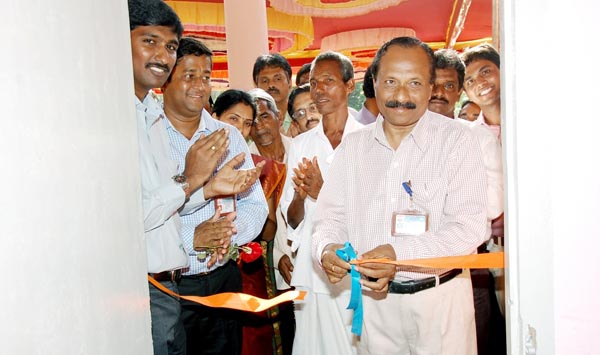
Mangalore, April 18: Hindustan Petroleum Corporation Limited (HPCL) handed over two classrooms, administrative office and a toilet complex to Harkala Newpadpu Zilla Panchayat Samyuktha High School, more popularly known as Hajabba's school.
HPCL chief manager Krishna Kutti inaugurated the new building and handed over it to school Development and Monitoring Committee working president Harekala Hajabba at a programme held here recently at Newpadpu on the city's outskirts.
Krishnan Kutti said that the buildings were built under its corporate social responsibility. Hajabba who has brought fame to his village is a towering personality. His contribution to education is a model and worthy of emulation, he stressed.
“There can be no bigger respect for HPCL and Hajaba if children studying in this school do better in academics and come up in life to occupy prominent position in society,'' Kutti stressed and added that parents must take equal responsibility in ensuring that their children are better educated.
Hajabba addressing the gathering played down his role and highlighted that it was contributions from philanthropists that fuelled his dream of building a school for poor children in his village. He prayed for a long life and peace to all those who had cooperated and assisted him in realizing the dream. On the occasion, Krishnan Kutti and Sunil Salian were felicitated by the teachers.





Comments
Add new comment